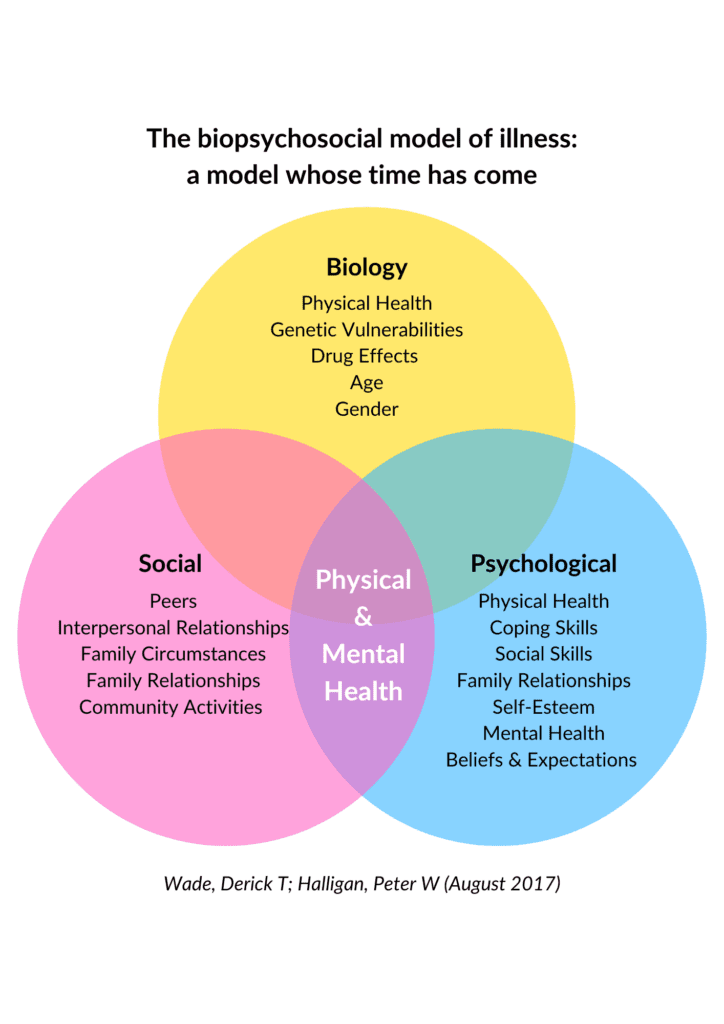
The connection between neurodiversity and mental health

What is Neurodiversity?
Neurodiversity is a concept that recognises and respects the diverse ways in which human brains function. It suggests that variations in neurological functions and cognitive processing, such as those seen in autism, ADHD, and other neurodevelopmental conditions, are normal and should be valued. The term was coined by sociologist Judy Singer and is part of a broader social movement advocating for the acceptance and inclusion of all neurological differences.
It’s important to recognise that while discussions about neurodiversity often encompass a broad range of conditions, each one manifests distinctly and has its own specific effects on a person. For example, we understand Autism as a cluster of traits that affect social communication, behaviour, and interaction. A diagnosis is made when these traits cannot be better explained by another condition and significantly impact daily functioning.
It’s important to note that these traits can vary greatly among individuals, reflecting the spectrum nature of the disorder. The same is true for ADHD or dyspraxia and others. We are all somewhere on this spectrum of traits. However, some people are more impacted by these traits than others, specifically when it comes to their mental health.

Exploring the relationship between neurodiversity and mental health
There is a strong link between neurodiversity and mental health, with individuals with neurodivergent traits often living with unique mental health challenges.

The biopsychosocial model
The biopsychosocial model is a comprehensive approach to understanding mental health, integrating the intricate interplay of biological, psychological, and social factors. This model, developed in the 1970s, acknowledges that an individual’s wellbeing is the result of multiple overlapping influences, including genetic predispositions, emotional states, and the broader social environment. The model builds upon the idea that “illness and health are the result of an interaction between biological, psychological, and social factors.”
The model is a holistic perspective that has transformed healthcare practices, emphasising the importance of considering the whole person rather than just physical symptoms.
In the context of neurodiversity, this model acknowledges neurological variations that individuals may experience, such as autism, ADHD, and dyslexia, as only one part of the puzzle that makes up a person’s mental health. It emphasises the importance of considering the whole person, including their strengths and challenges, rather than pathologising neurodivergent traits, and takes into account several risk factors which can contribute to poor mental health.
By adopting a person-centered approach, the biopsychosocial model can guide more empathetic and effective support, accommodations, and interventions for neurodiverse individuals.
The risk of stigma on mental wellbeing
The stigma surrounding neurodivergent individuals can have a significant impact on their mental wellbeing. Here are some ways in which stigma affects them:
Self-esteem and identity
Stigma often leads to feelings of shame, inadequacy, and low self-esteem among neurodivergent individuals. They may internalise negative stereotypes and believe that there is something inherently wrong with them. This can negatively impact their sense of self and overall mental wellbeing.
Social isolation
Stigma can lead to social exclusion and isolation for neurodivergent individuals. They may face discrimination, bullying, or rejection from their peers, colleagues, or even family members. This isolation can contribute to feelings of loneliness, depression, and anxiety.
Limited opportunities
Stigma can create barriers to education, employment, and social opportunities for neurodivergent individuals. It can result in limited access to resources, support, and accommodations that are necessary for their wellbeing. This lack of opportunities can further exacerbate mental health challenges.
Internalised stigma
If you internalise negative beliefs, this can lead to self-doubt, self-blame, and a sense of hopelessness. It can also prevent people from seeking help or support, worsening their mental health.
Impact on mental health treatment
Stigma can discourage neurodivergent individuals from seeking mental health treatment. They may fear judgment, misunderstanding, or being labelled as “crazy” or “broken.” This can result in delayed or inadequate access to necessary support and interventions.
Addressing the stigma surrounding neurodivergent individuals is crucial for their mental wellbeing. It requires promoting education, understanding, and acceptance to create inclusive environments that value and support neurodiversity.




Neurodivergent traits and challenges
Individuals with neurodivergent traits may also face unique mental health challenges due to the way their brains process information and interact with the world. Some of these challenges include:
Sensory sensitivities
Many neurodivergent individuals have heightened sensitivities to sensory stimuli, such as noise, light, or touch. These sensitivities can lead to sensory overload or overwhelm, resulting in anxiety, irritability, or even panic attacks.
Executive functioning difficulties
Executive functioning refers to a set of cognitive processes that help individuals plan, organise, prioritise, and complete tasks. Neurodivergent individuals may experience challenges in areas such as time management, organisation, and impulse control. These difficulties can lead to increased stress, frustration, and difficulty meeting expectations.
Social communication challenges
Neurodivergent individuals may struggle with social communication, including understanding nonverbal cues, maintaining eye contact, or interpreting social nuances. These challenges can result in feelings of isolation, difficulty forming relationships, and increased anxiety in social situations.
Emotional regulation
Difficulties in regulating emotions are common among neurodivergent individuals. They may experience intense emotions or have difficulty identifying and expressing their feelings appropriately. This can lead to mood swings, meltdowns, or emotional dysregulation, impacting their overall mental wellbeing.
Co-occurring mental health conditions
Neurodivergent individuals are more likely to experience co-occurring mental health conditions such as anxiety, depression, or OCD. These conditions can further complicate their mental health challenges and require tailored interventions and support.
It is important to recognise and understand these unique challenges faced by neurodivergent individuals to provide them with appropriate support and accommodations. By creating inclusive environments and promoting neurodiversity acceptance, we can help reduce the impact of these challenges on their mental wellbeing.
Promoting acceptance and offering support in the workplace
Recognising the significance of acceptance and support for neurodivergent individuals is paramount in fostering positive mental health outcomes and creating an inclusive and productive workplace.
Practical tips and strategies play a crucial role in this endeavour, and by cultivating inclusive environments that embrace neurodiversity, we can empower individuals in your organisation to thrive.
Examples of practical tips and strategies may include:
• Evaluating and adapting the working and sensory environment to accommodate individual sensitivities, such as lighting and noise levels.
• Allowing flexible deadlines for work-related tasks to cater to different processing speeds and work habits.
• Making all instructions and expectations for work-related tasks explicit to avoid confusion and anxiety.
• Increasing predictability in the working environment to reduce stress and support focus.
• Fostering open communication and providing clear channels for feedback and questions.
Implementing team training to promote understanding and support for neurodiversity.


Additional empowering initiatives include:
• Encouraging advocacy efforts to promote understanding and acceptance of neurodiversity in the workplace and overall society.
• Empowering neurodivergent individuals to embrace their strengths, talents, and unique perspectives.
• Providing access to mental health services and tailored support that caters to the specific needs of neurodivergent individuals.
• Celebrating neurodiversity by highlighting success stories and achievements of neurodiversity individuals and showcasing the strengths and contributions they bring to various fields.
Empowering your organisation to support neurodiverse individuals
At Medigold, we’re dedicated to empowering organisations and employers to understand and embrace neurodiversity, creating more inclusive and compassionate workplaces.
Our neurodiversity support services will develop your managers’ understanding of neurodiversity, giving them the tools and confidence to implement communication strategies and adjustments beneficial for neurodiverse employees, creating a workplace that is inclusive and supportive of everyone.
Scroll down to view our neurodiversity webinars and courses, or to contact us for more information on our training!

Upcoming highlights: Don’t miss out!
We are excited to let you know that we have a variety of events due to take place soon, including our ‘free to attend’ webinars that have been specifically scheduled in line with the upcoming national event of ‘Mental Health Awareness Week’ (13th – 19th March 24).
These webinars will help you grow your knowledge and confidence within the subject area, as well as provide you with a recorded copy of the webinar following attendance to enable you to share this with colleagues.
In addition to our webinars, several ‘open courses’ are scheduled over the coming months that still have places available. So, feel free to explore these options and get your place secured to avoid missing out!
Ready to dive into a world of learning and development?
Scroll down to see our full line up, and book your place today!
| Service Type | Title | Dates | Times |
|---|---|---|---|
| Open Course | Mental Health First Aid Refresher | 4th, 5th September 2024 | 10:00am – 12:00pm |
| Open Course | Suicide First Aid Lite | 26th – 27th September 2024 | 2:00pm – 3:30pm |
| Open Course | Mental Health First Aid Full | 24th, 26th September & 1st, 3rd October 2024 | 09:30am – 13:00pm |
| Open Course | Mental Health First Aid Full | 22nd, 24th, 29th, 31st October 2024 | 09:30am – 13:00pm |
| Open Course | Menopause in the Workplace | 28th, 29th October 2024 | 10:00am – 12:00pm |
| Open Course | Dyslexia Awareness | 30th, 31st October 2024 | 09:30am – 12:00pm |
| Open Course | Disability & Health for Managers | 18th, 19th November 2024 | 10:00am – 12:00pm |
| Open Course | Mental Health First Aid Full | 20th, 22nd, 27th, 29th November 2024 | 09:30am – 13:00pm |
| Open Course | Neurodiversity Awareness for Managers | 21st, 22nd November | 10:00am – 12:00pm |
| Open Course | Mental Health First Aid Full | 10th, 12th, 17th, 19th December 2024 | 09:30am – 14:00pm |
| Open Course | Mental Wellbeing in the Workplace | 28th, 29th November 2024 | 09:30am – 12:00pm |
*Course includes E Learning Modules required to be completed prior to attendance at live sessions

We’re here to help…
If you’re looking for more information about our comprehensive training courses, insightful webinars, or valuable resources, we’re just a message away. Don’t hesitate to reach out for any queries or guidance you might need.
Our friendly training team are always ready to assist you with expert advice and support.
Alternatively, complete the short form on the right and a member of the team will be in touch!


